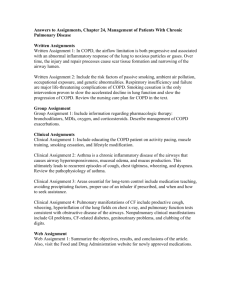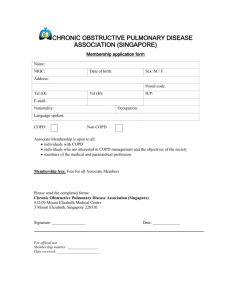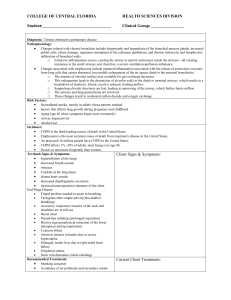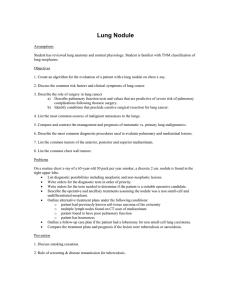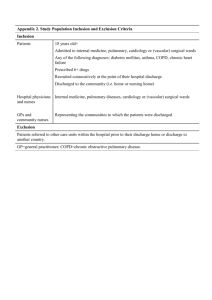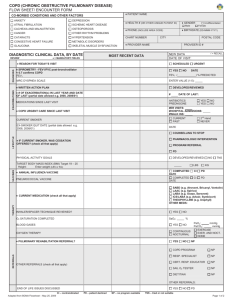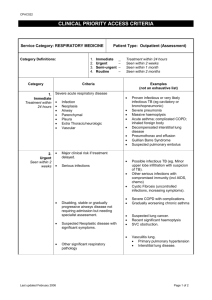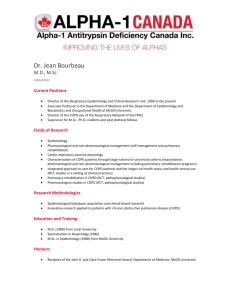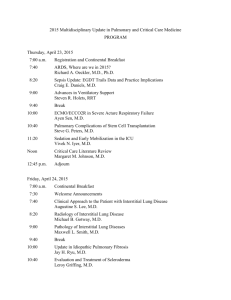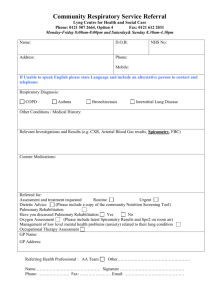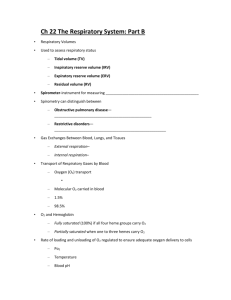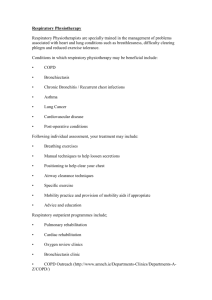Objectives
advertisement
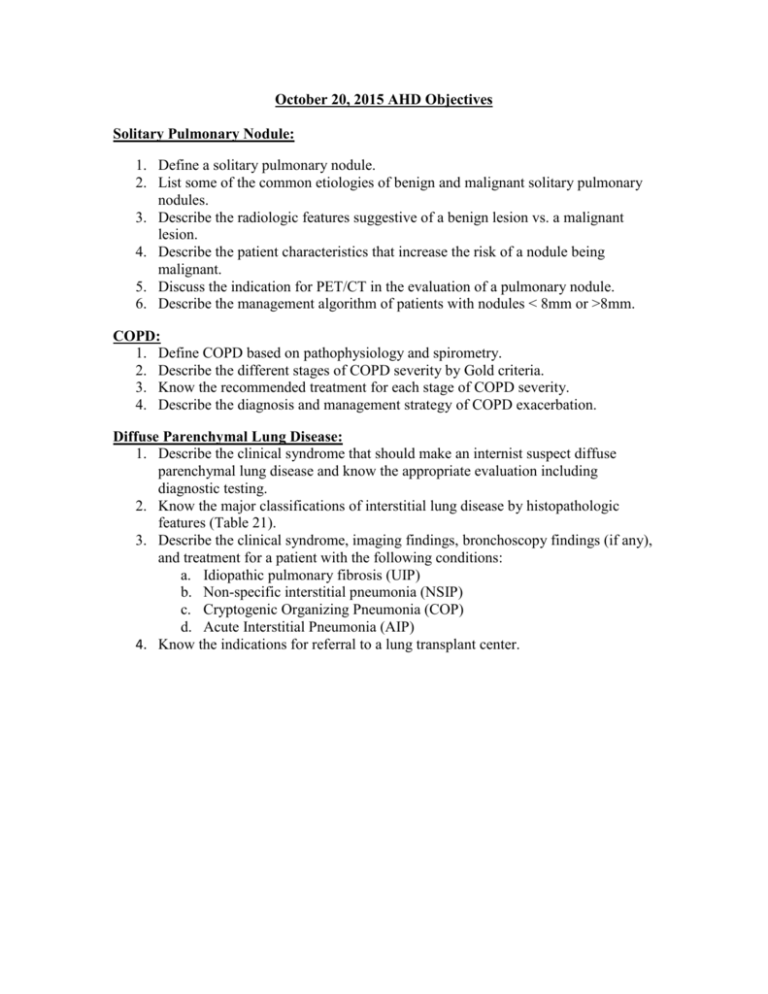
October 20, 2015 AHD Objectives Solitary Pulmonary Nodule: 1. Define a solitary pulmonary nodule. 2. List some of the common etiologies of benign and malignant solitary pulmonary nodules. 3. Describe the radiologic features suggestive of a benign lesion vs. a malignant lesion. 4. Describe the patient characteristics that increase the risk of a nodule being malignant. 5. Discuss the indication for PET/CT in the evaluation of a pulmonary nodule. 6. Describe the management algorithm of patients with nodules < 8mm or >8mm. COPD: 1. Define COPD based on pathophysiology and spirometry. 2. Describe the different stages of COPD severity by Gold criteria. 3. Know the recommended treatment for each stage of COPD severity. 4. Describe the diagnosis and management strategy of COPD exacerbation. Diffuse Parenchymal Lung Disease: 1. Describe the clinical syndrome that should make an internist suspect diffuse parenchymal lung disease and know the appropriate evaluation including diagnostic testing. 2. Know the major classifications of interstitial lung disease by histopathologic features (Table 21). 3. Describe the clinical syndrome, imaging findings, bronchoscopy findings (if any), and treatment for a patient with the following conditions: a. Idiopathic pulmonary fibrosis (UIP) b. Non-specific interstitial pneumonia (NSIP) c. Cryptogenic Organizing Pneumonia (COP) d. Acute Interstitial Pneumonia (AIP) 4. Know the indications for referral to a lung transplant center.
